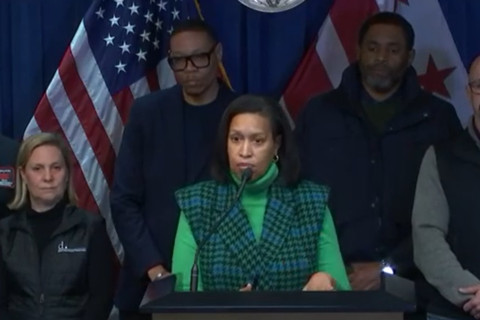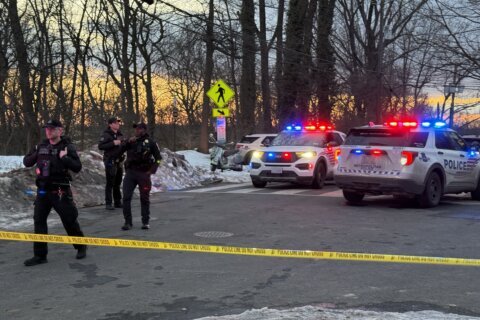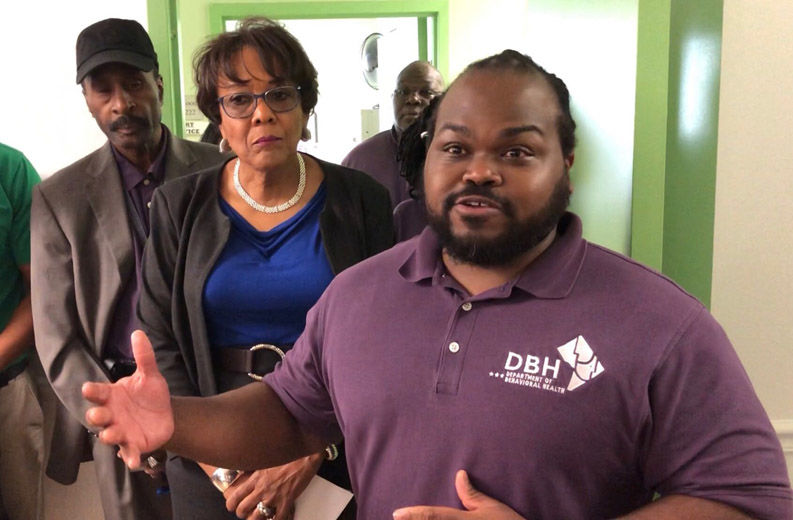
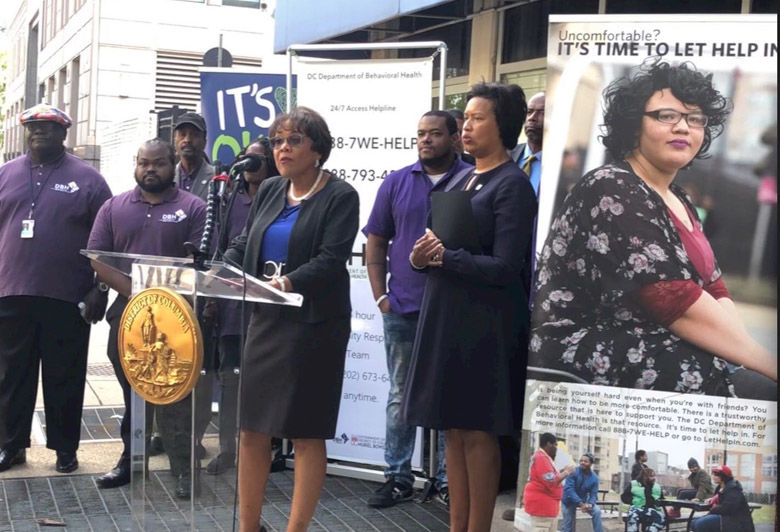
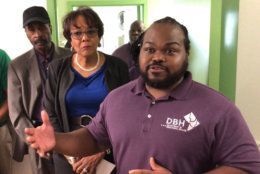
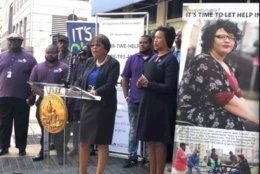
People who need mental health support for drug addiction or after some kind of tragedy might not realize it, so D.C. is expanding community outreach and school-based programs.
The new Community Response Team brings together and expands three existing programs: the mobile crisis team, the pre-arrest diversion program and the homeless outreach program.
“It means the opportunity to help someone reach a different place,” said Anthony Hall, the director of the Community Response Team, part of D.C.’s Department of Behavioral Health. “To help somebody understand what’s available and to help really start connecting individuals with whatever they view as an opportunity to improve.”
The team comprises social workers, community outreach workers and peers with lived experience. There now are 36 team members. Active hiring is building up to a 62-member staff that will work in every ward to connect people with services, to do crisis response, and to go where people experience homelessness.
Hall is a licensed clinical social worker. Other team members with special training include experts in substance use disorders and trauma.
“The Community Response Team saves lives,” said Barbara J. Bazron, director of the Department of Behavioral Health.
And it’s a key initiative in the District’s plan to reduce opioid use, misuse and related deaths.
In the past three months since the CRT was created, team members have administered naloxone to 13 people experiencing potentially fatal drug overdoses; done CPR three times; and responded to more than a dozen tragic incidents, including suicide. They’ve delivered hundreds of people to care, including people who had given up on recovery, Bazron said.
“The team is available, any time of the day or night, to respond to individuals in crisis and to support communities,” she said.
To get help in D.C., call 202-673-6495, 1-888-7WE-HELP (1-888-793-4357), 911 or 311.
School-based mental health support, now in its second year, has expanded to 119 public and charter schools. The plan is to expand into all District schools within four years, Bazron said.
“In the schools every day are clinicians who either are doing prevention work like anti-bullying activities and ‘safe touch,’ or they’re actually doing treatment with students who need it and their families,” said Phyllis Jones, the department’s chief of staff. “They also go in the homes if needed.”



